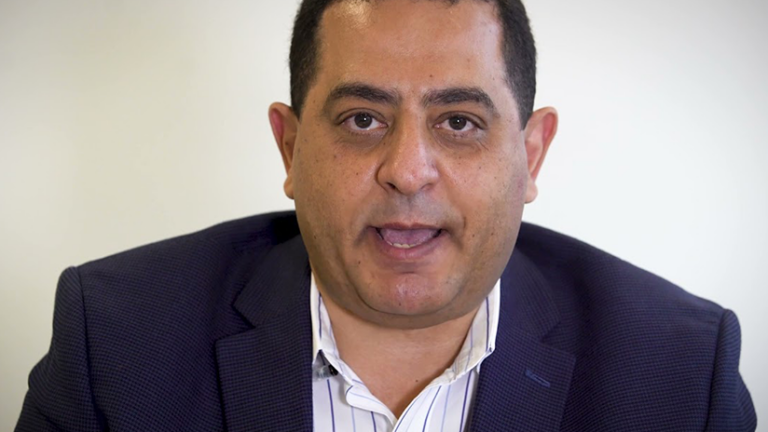
Patterns and prose: A USC computer scientist is a coder by trade and a poet at heart
One of USC’s top experts at the Information Sciences Institute whose influential work is changing brain research and helping to catch fake videos has an ambitious goal in his spare time: to translate all the works of a beloved Egyptian poet.
https://youtu.be/ng8bntd_cA0
Poetry in Arabic
During the day, Wael AbdAlmageed writes computer code with an aim toward giving doctors new tools for diagnosing the severity of a genetic defect in children. He’s also creating programs that can identify deepfake videos that have been doctored to spread misinformation.
But when AbdAlmageed is not in his lab at the USC Information Sciences Institute, he works on another form of coding for the sake of sharing art: translating the poetry of Amal Abul-Qassem Donqol.
These are not incongruent skills, AbdAlmageed explained in a recent interview. Computer coding itself is as much an art form as literary translation and writing poetry.
Poetry, English translation:
You’ve been working on artificial intelligence and biometrics for 30 years. What first sparked your interest?
I’ve been working on AI-related problems since the days when it was called “pattern recognition.” The was during my master’s degree program in Egypt in 1995.
Have you always had a knack for coding? Do you tap these skills for other endeavors?
I started getting interested in coding during middle school because of Ammar el-Sherei — an iconic Egyptian composer who, despite born blind, was a computer programmer. He helped Yamaha make their keyboards play the quarter tone, which does not exist in the Western music (think of another piano key between the black and white keys).
Coding, to programmers, is a form of art, just like poetry, which has always fascinated me. That is why I started my new translate-amal.org project to translate the work of a famous Arabic poet.
For non-programmers who are reading this, can you elaborate on how coding is an art form and provide some examples?
In terms of coding, if you give the same problem to multiple programmers, each of them will most likely do it in a completely different way. I am not talking about trivial programs. All these programs could achieve the same thing, but they will be different in many “artistic” ways including code readability, efficiency, design, and even names of variables and functions in the code. You look at many of these and you actually start appreciating the “creative” process, the patience and attention to details of an artist.
Tell us about the poet and what drew you to his work.
This poet is Amal Abul-Qassem Donqol. He was a champion of social justice and freedom of speech. He was more of a philosopher who used poetry and language as a medium to convey his ideas. His ideas were revolutionary and unprecedented in the history of Arabic language.
He died of cancer at age 43 in the early 1980s. I believe he is the greatest poet in modern Arabic history.
Do you have a favorite poem by him?
Most of his work is fascinating, but I personally relate to his poem “Birds,” especially where he goes:
Flap thy wings
For ye got no way
(while the perpetrators and the victims are awake)
Ye got no way, but to flee
An escape, reborn with every dawn
Despite seemingly fatalistic on the surface, I believe the most important message in his work is that we humans should never stop rebelling against social injustice, no matter what the consequences are.
What is your time frame for completing the translation of his poems?
I plan to translate one poem every month. It might take me 10 years to translate most of his work, but I will get there.



